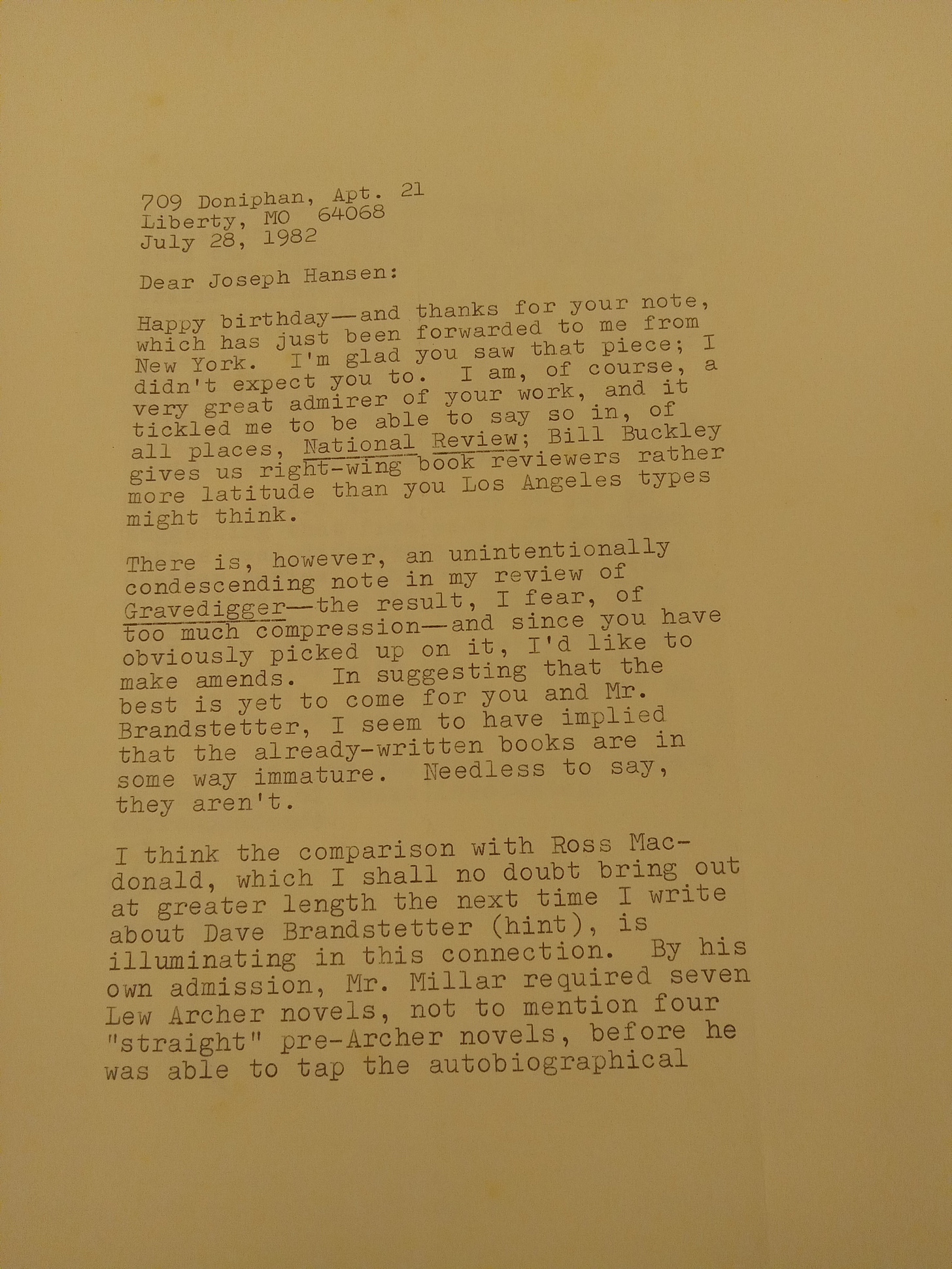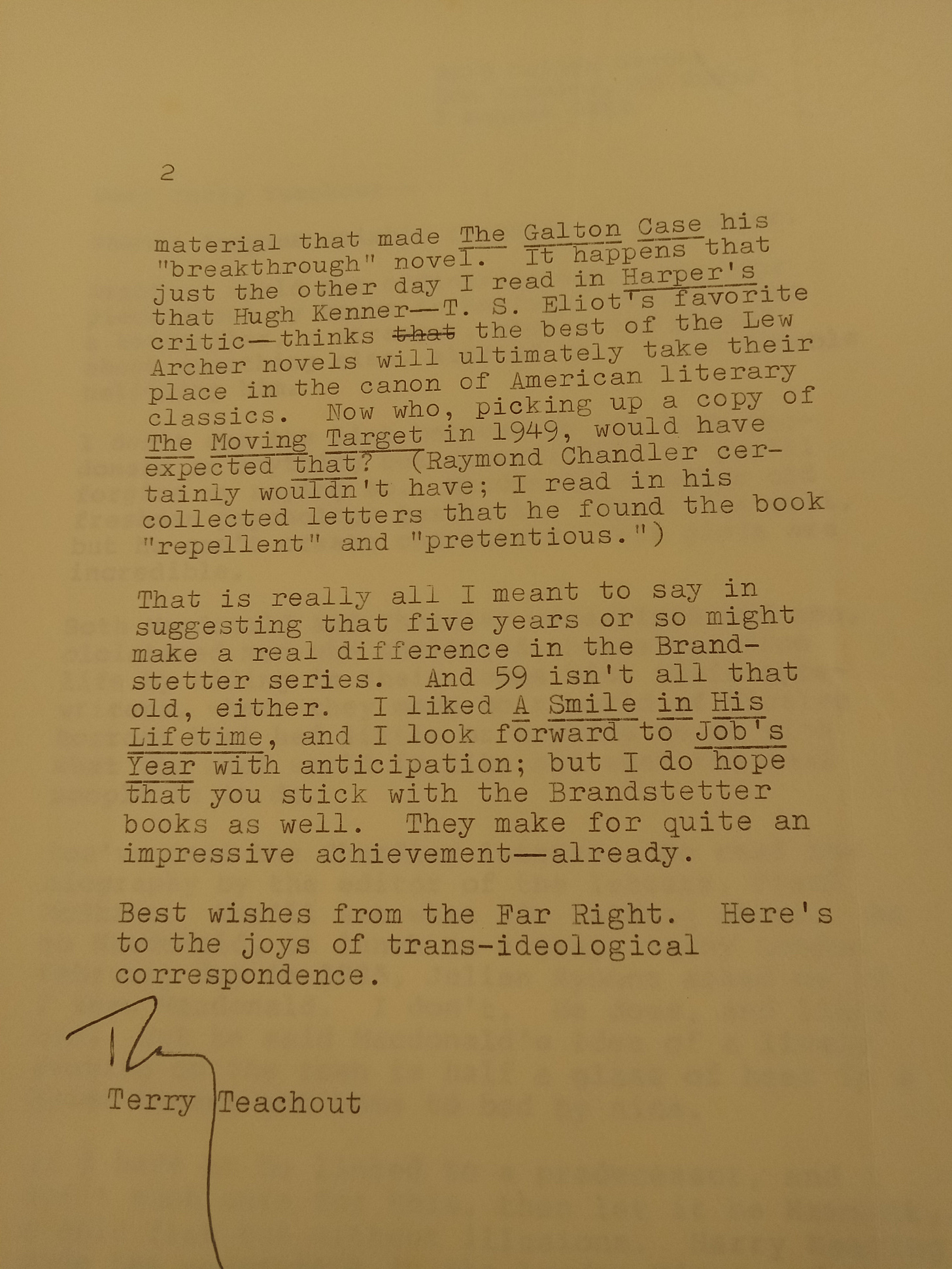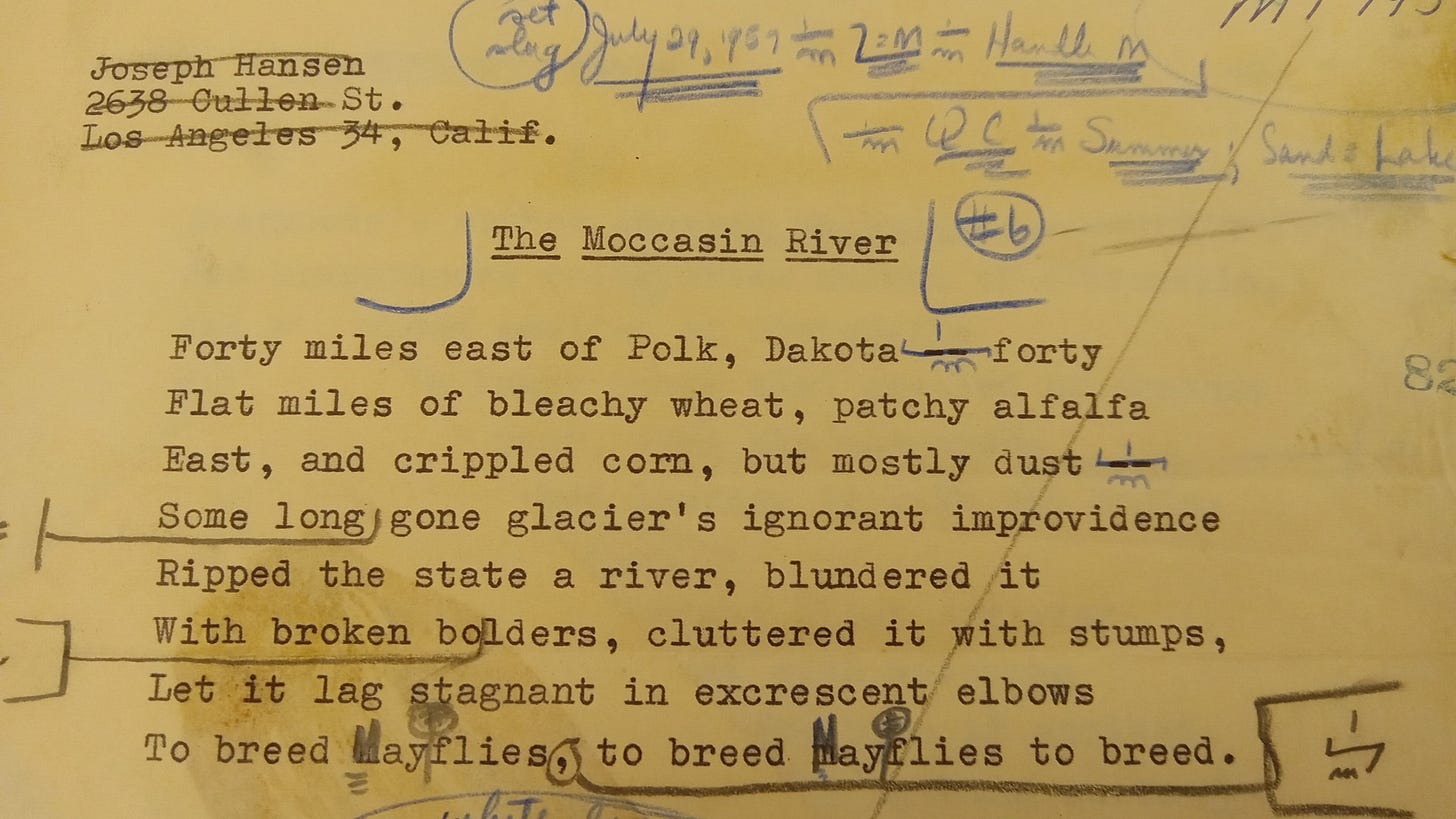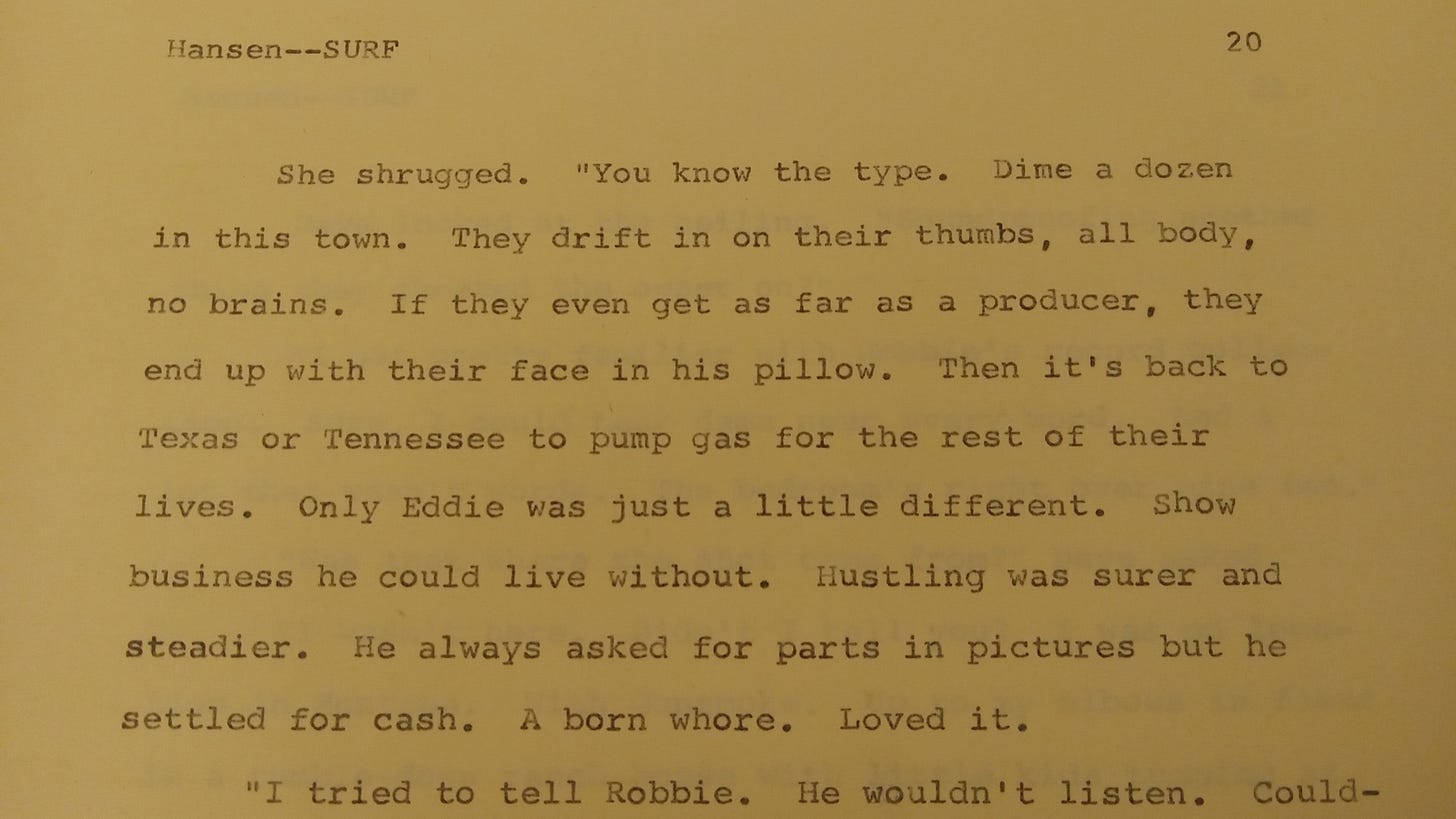I got into Pasadena for a research stint at the Huntington just a couple of days before the fires started… an inauspicious way to start a year that already has a Trump inauguration against it! I’m here looking at the papers of the writer Joseph Hansen (1923-2004), author of a series of gay detective novels in the 70s-80s that are, actually, not bad (I’ll be posting more about them/him in the coming weeks). His dozen ‘Dave Brandstetter novels’ are still in print—and indeed have been recently republished, and made into audio books, and supposedly are in production as a Netflix adaptation.
Their fans included Terry Teachout, who wrote positive reviews in The National Review, leading the perplexed Hansen, with a great deal of initial irritation, to take up a years-long and ultimately amicable correspondence with Teachout, who comes off charmingly:
I guess Teachout walked so Armond White could run.
Brandstetter was most successful as a mystery-novel writer, a fact that he somewhat resented, since he’d also written a couple of (utterly unsuccessful) ‘literary’ novels, and some (bad!) poetry in The New Yorker, such as this one beginning:
The legendary Howard Moss, who published this shit, rejected Elizabeth Bishop’s “Shampoo”! So long as it will not burst the fetters of the Devil, amend itself and do penance and make reparation to the Church which it has offended, we deliver The New Yorker to Satan…
Hansen’s most popular, if not his most enduring, work besides the detective novels was a bunch of porn he wrote under the name James Colton in the 60s—it seems to have been good training! While many writers of gay porn in that era had purple gushing opaque prose (his swollen member surged towards my inviting portal of ecstasy), ‘Colton’ wrote in a clipped rhythm that suits stories about hard-boiled dicks of both kinds. Here’s a random page from a short story in which the protagonist visits a radical campus, contemptuously but hornily:
As far as parataxis, studied informality, and playing knowingly with stereotypes goes, eat your heart out Robert Gluck! Is this the real gay post-avant-garde? When does James Colton get the NYRB treatment?
The same staccato choppiness that makes for interesting porn works I think just as delightfully in the speech of this minor figure from a 70s detective story under Hansen’s own name ("Yeah I seen him—but what’s it to you?”—detective stories like porn have stock characters and silly plots—and, as I’ll argue later, end up being better fiction than most of the sad vibes-based form-less auto-whateverical musings that make up most of the canon of contemporary gay/queer/anything fiction—give me a story!):
I love the artificiality of this way of talking—the voice of the classic detective novels, but also of Mamet and Pinter, the wide stylized spaces between short sentences, the cynical posturing of all the peripheral types who appear briefly to register their jaded perspectives.
Unfortunately Hansen the man doesn’t much please me. He was a real SoCal girl, writing fan letters to L. Ron Hubbard and astrologers:
Regrettable! Luckily for me none of my enthusiasms will ever appear less than wise and tasteful to posterity…
More to come on Hansen—and, in the pipeline, proper essays (not Substack posts) on Alan Ansen, James Merrill, Foucault, etc. And just published in Airmail, my review of a recent book on the history of gay pop music. An earlier, longer version included this celebration of Sylvester, whose “You Make Me Feel Mighty Real” sings everything the German Idealists were trying to say:
If The Secret Public makes a dubious case for Bowie as the pivotal figure in popular music’s opening up to gay sexuality, its story is more convincing in putting Sylvester, whom (following Joshua Gamson’s definitive biography of the singer) Savage calls “the first openly gay superstar,” at the culmination of a twenty-year shift from the veiled innuendos of Little Richard and Liberace to unapologetically gay music for gay audiences. The gender-bending performer rose to prominence in the early 1970s with the San Francisco avant-garde drag group The Cockettes. Later in the decade, during the brief heyday of disco, he became an international star while always keeping the Castro’s denizens as his core audience. Struggling in the 1980s to reinvent himself after the disco fad ended, he was on the cusp of a comeback (with help from Joan Rivers, who chatted with him about his lover on her talkshow) just before his death from AIDS in 1988.
In his periods before and after the height of his fame, Sylvester struggled for the resources and collaborators he needed to make excellent music. But the best of his work, from his fusions of gospel and disco backed up by the future Pointer Sisters and the Weather Girls to the computerized dance music produced by Patrick Cowley, remains central to the canon of gay male culture. “You Make Me Feel Mighty Real,” for example, brilliantly performed by Sandra Bernhard in a tribute to Sylvester (and the centerpiece of a 2014 off-Broadway musical), is to music what Andrew Holleran’s Dancer from the Dance is to literature. Both released in 1978, they express the exuberance of urban gay life, centered on dancing and sex, in the years before AIDS.










You have gems here. Glamor tilted without being chintzy.